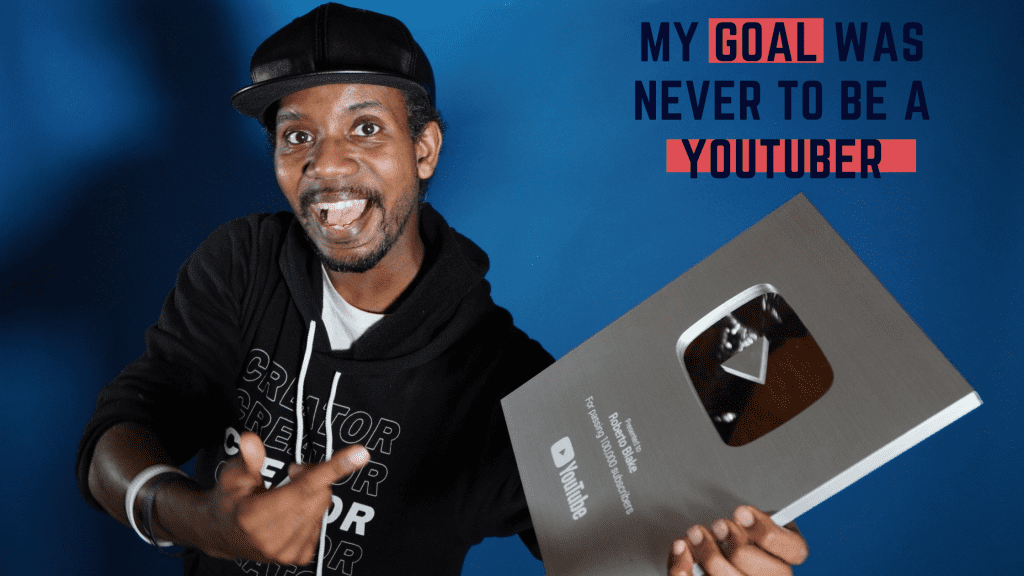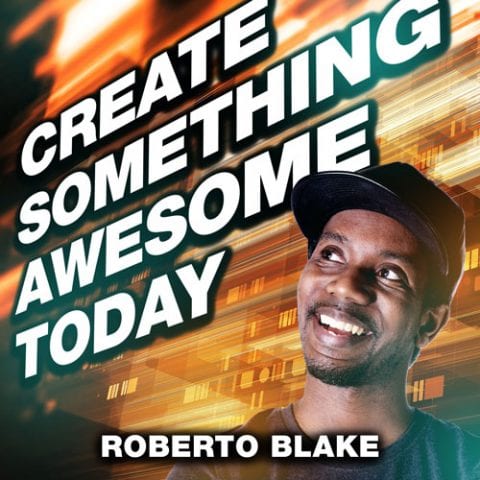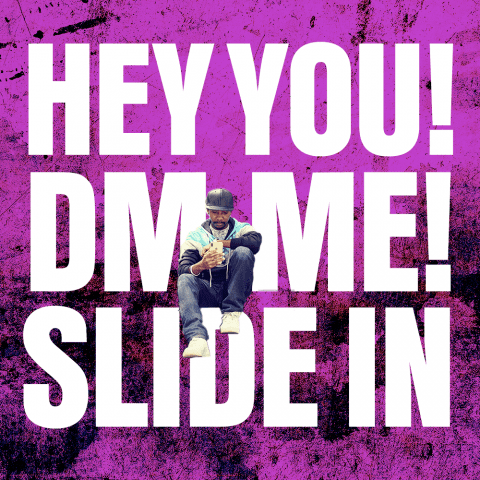There are a lot of people that want to be YouTubers. Younger generations will tell you when they grow up they either want to be a YouTuber or an influencer. Even those who are in an older generation, ages twenty-five or older are commonly putting out YouTube videos with the hope of one day being able to do it full time. I may have never have become a full-time YouTuber, thinking back there is a lot to this statement that many people may not know. I want to share with you how I got started on YouTube and what YouTube looks like for me in the future.
What is a Full-time YouTuber?
I talk constantly about how to grow, how to build an online business, and the importance of building your brand. This is not how I started on YouTube.
I have spoken a lot about my journey but I want to take the time to talk about what being a “full-time YouTuber” actually means. A full-time YouTuber’s main source of revenue comes from YouTube.
It may be due to your ad revenue or sponsorships. These eight years of doing YouTube have been a journey. The main way that I make my income is not as a full-time YouTuber
I make most of my revenue through my online businesses such as affiliate marketing and coaching sessions or the Awesome Creator Academy.
YouTube does make an income for me, but what I try to explain to people is that I use YouTube to build my brand and to make money outside of the platform. I believe in the Creator Economy and the fact that creative people have a nearly infinite amount of options to monetize.
Buying into the dream that is YouTube

There is this belief that if you get enough followers on YouTube, you will be financially taken care of. I have almost always made more off of YouTube by doing other things. A lot of content creators on Twitter are sharing their actual income from YouTube.
There are videos with over two million views that receive less than five hundred dollars in ad revenue.
People think that everyone is a snake oil salesman. Buying into the dream of YouTube is mostly choosing to believe in what you want to believe in. Yes, YouTube is a job. YouTube does revenue sharing, if you do not make them money, there is nothing to share.
They are not obligated to provide you with an income. This may sound discouraging but YouTube owes you nothing. When you approach it from this standpoint, you will end up being more successful.
YouTube is a lucrative career opportunity. The keywords there are “career” and “opportunity”.
I Didn’t Consider Myself a Content Creator
I created my YouTube account in 2009. My first video was in my backyard and it was a camera test on a flip screen camera. I made maybe four videos a year. I was not at the point yet where I had any form of commitment to my channel nor did I post with any sort of regularity. Therefore, I did not consider myself a content creator at that time. It was more than four years before I started making videos regularly in 2013. If you are going to be a content creator then you need to show up for your audience. I was putting the information out there so that I could educate people how to edit and freelance online like I was. I did this intending to get hired for freelance work in the beginning.
It didn’t become financially viable let alone a six-figure income, for many years. And YouTube Adsense revenue has been for a long time even with millions of views, one of my smaller overall income streams.
YouTube is not a fast track to riches or even one of the best strategies for existing your day job. It is a great opportunity and a valid career choice. What people don’t realize it is that in choosing to be a content creator, you are choosing a very challenging creative profession, and entering a growing and very competitive industry that doesn’t offer conventional stability.
Being a full-time YouTuber only looks like a privileged position to the uninitiated, and ironically has become a focal point of criticism for overworking, hustle culture, and burnout, while simultaneously being framed as “privileged” and “not a real job”.
The reality of being a full-time YouTuber is that it is usually done at a deficit and loss for the first few years, requires learning highly difficult skills like video editing, cinematography and graphic design, and if broken down to hours and return the first few months or even years would pay less than minimum wage or nothing at all.
My GOAL Wasn’t Really YouTube
The goal was not to be a big YouTuber or gain subscribers. The goal was to show people what I chose to be passionate about and help them change their circumstances. The audience was giving me feedback that helped me improve the content and I used the comments as constructive feedback to improve. I began talking about career development to help those who wanted to get into freelance work or design. I advised on the jobs that I had worked myself. At the time, I was a company man. I worked at an agency in Midtown Manhattan. I chose to talk about what I had experienced to be there for those who did not have a mentor or anyone that they were able to resonate with. What if someone wanted to learn something my way or would be able to understand the way that I explained the content more easily?

Consistency
At one point after my first year or so, I was posting several days a week. I gained ten thousand my first year because of my consistency. It was because I chose to commit to my channel in 2013. My background in video editing before YouTube had ever existed and already knew Search Engine Optimization.
YouTube was still an infant when Google bought it out. Google is a search engine. Mastering organic SEO was a big part of my job description before starting YouTube. As a graphic designer, I was very careful about my thumbnails for my content, especially my tutorials.
My tutorials were the videos I was most passionate about. I realized later that every video matters. So I worked to rank my videos in search and create evergreen content.
Any success I had on YouTube can put down to discipline, consistency, and patience. It took discipline to improve my craftsmanship and to overcome my awkwardness on camera. Through consistency, I was able to keep improving and build a relationship with my audience. Through patience, my results kept growing in proportion to that discipline and consistency over an 8-year career. These are the values that ultimately produced my success. There was no lucky break, no viral video, not shoutout or collaboration that did it. It sounds immodest to call one’s self a “self-made success story”. Our culture has started rejecting the celebration of individualism, which is at the core of all artists and creatives.
The story of artists is always one of isolation and toil for their craft. It is by its nature a lonely endeavor at the start, and often at the finish. But I believe that the growing Creator Economy and building of strong communities around creativity is changing all of that. It is bringing people out of that isolation and offering them a shared vocation and journey that might be a little less lonely.
Final Thoughts
Evergreen content is what makes my channel viable. Entertainment channels cannot do what I do, which is really unfortunate for their mental health.
They cannot take time off and expect to make the same income or take care of themselves. I can leave my content and write, refine my team and plot out my next five years. I have time to do public speaking when I am able and be present without having to worry.
The first three years of my YouTube meant not taking brand deals or free products. I gained more subscribers and I am able to shift my content to support creators and entrepreneurs.
I am hiring a team to be able to take the time to start ramping up my content again.
My approach to being a full-time content creator is to build it from practicality and fuel it with passion. It has to be sustainable as a career and lifestyle choice. This means that every decision can be dictated by whims or desires. It must come from the discipline of mind, and data-driven decisions.
This is a core lesson that I wish to pass on to other Creators on their journey. It is essential for the sake of their mental health and their overall well-being.
My hope is that we can end the era of the “starving artists” once and for all, but I also hope we can preserve authenticity in the face of seeking acceptance and validation as artists.
My goal was never to be a YouTuber. I recognized that it could be lucrative and that I could enjoy the process.
Ultimately have to put the audience first, but I think that comes down to alignment more than choosing between success and expression.
How much conformity is there before you give people what they want but you lose who you are?
Find more about my YouTube Journey on my playlist:
https://www.youtube.com/playlist?list=PLvUg-IRiErnNXDUGS8RRIxuR4PRZurBln
Connect with me: https://robertoblake.com/contact/






0 Comments